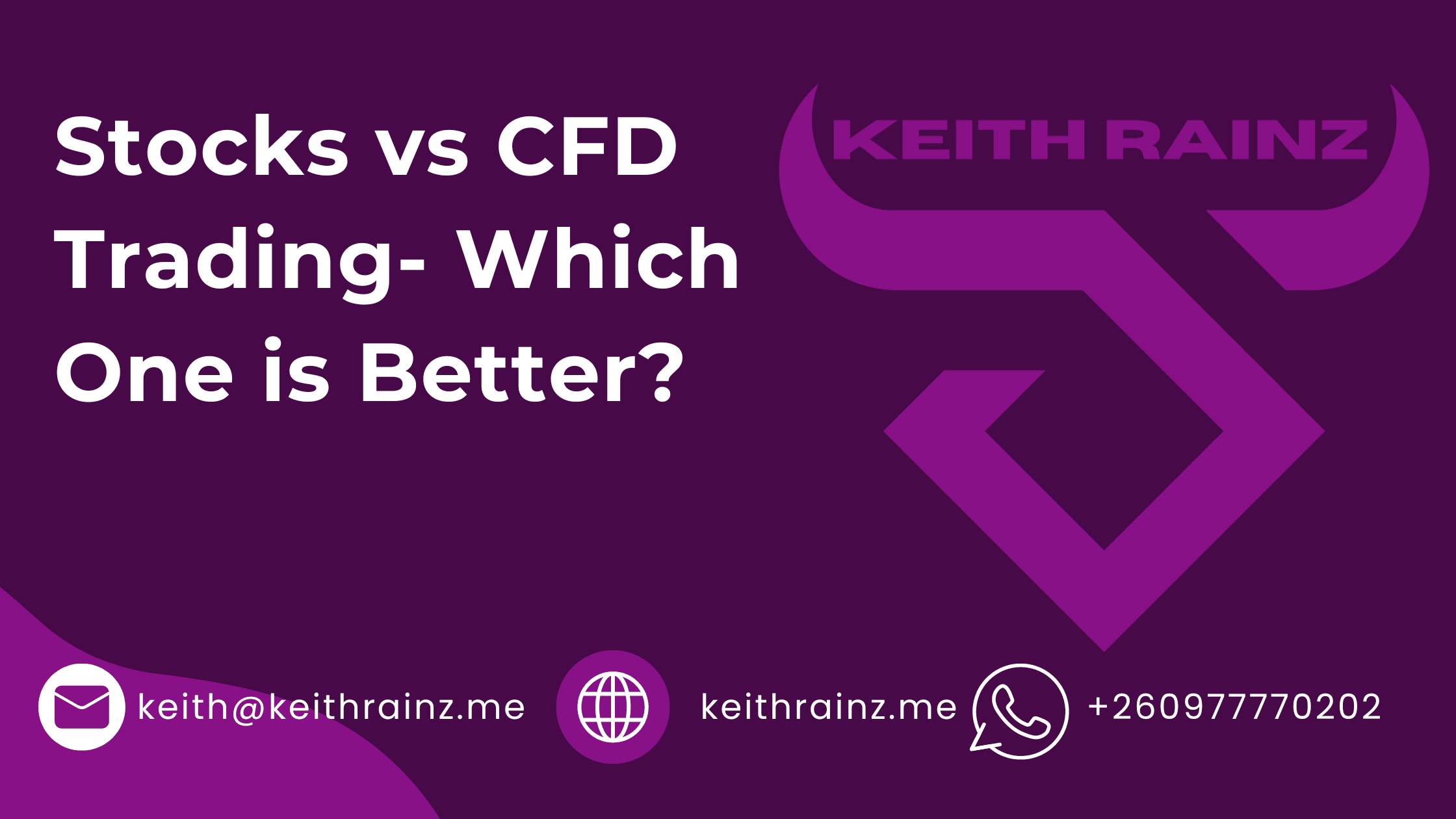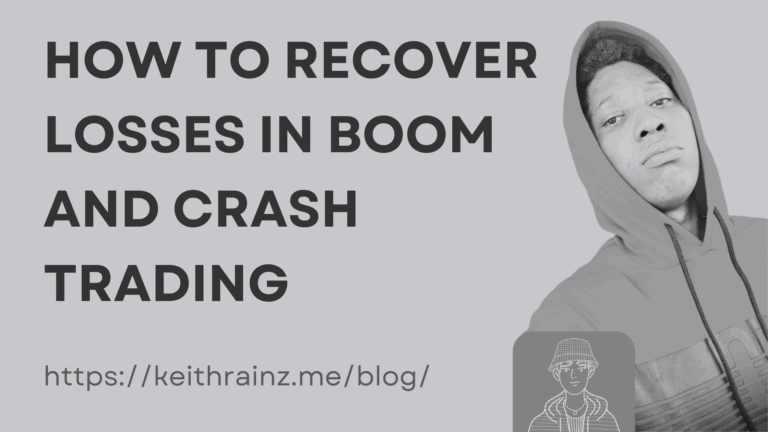The key difference between trading stocks and CFDs is that with a CFD, you speculate on the market’s price without owning the underlying asset. When you trade shares, in contrast, you have to be the owner of the underlying equities.
Because CFDs are leveraged products, you only need to invest a small amount of money (the “margin”) to get full exposure. Profits will therefore increase, but losses will outweigh deposits. Contrarily, when trading shares, you must pay the whole cost of your position up front in order to prevent losing more money than you initially invested.
Both stocks and CFDs are viable options for your portfolio if you want to profit from price fluctuations in the financial markets. Review the key details listed below to discover the key distinctions between stocks and CFDs and decide which is best for you.
What Should I Trade: Stocks or CFD Trading?
An equities trader’s objectives and unique situation dictate whether they decide to trade stocks, CFDs, or a combination of the two. In this article, we will compare the two so that you can decide which is ideal for your trading.
What do you currently possess?
This is the primary difference between stocks and CFDs. When you purchase equity, like shares in a company, you own it until you sell it. With CFDs, there is no element of ownership. Instead, you and the broker have a contract.
The benefit of ownership is the range of benefits and advantages that go along with it for shareholders. the right to vote or the participation at shareholder meetings. Another benefit of stock ownership is the distribution of dividends.
If you purchase CFDs on company shares at the time dividends are distributed to shareholders, there is a significant possibility you may receive a payout. The conditions of the dividend, such as the sum handed out, will, however, be different from the conditions of a stockholder’s dividend.
Comparison of stocks and CFDs
The key distinctions between a CFD and Stocks are ownership and leverage. You take ownership of a stock after you purchase it. Acquiring a little interest in the company you invest in is a requirement of stock investing. Each share of stock costs the same amount when purchased.
The abbreviation CFD stands for contract for difference. Trading CFDs online allows you to make price predictions on securities without owning the underlying asset. A CFD may be backed by a stock, currency, commodity, or digital asset. Additionally, because CFDs are leveraged, you can start a trade with a lower initial stake.
Comparing ownership in stocks and CFDs, trading traders get ownership in stocks, but not in CFDs.
Leverage: Leverage can be used to trade CFDs, but not stocks.
Long or Short Term: Both trade can go on for a long or short period of time.
Trading Markets: CFD trading uses a variety of markets, whereas stock trading uses markets for equities and exchange-traded funds.
Trading Fees: Holding fees and commissions are levied for trading stocks and CFDs, respectively.
CFD trading is available around-the-clock, five days a week, but stock trading is only available during stock exchange opening hours.
Voting Rights: Stock traders have voting rights, while CFD traders do not.
Leverage enables you to invest in larger positions with a smaller amount of money, which is a benefit of stocks compared to CFD leverages. The trader is therefore more exposed to risk and gain possibilities.
Press the sell button to go short, and the process is the same whether you want to go long on a stock CFD.
Good market Lots: The majority of the major asset classes, such as equities, international stocks, currencies, commodities, indices, and so forth, are available for CFD trading.
Trading Hours: CFD trading is typically accessible around-the-clock, enabling participation from foreign investors. Only during the open hours of the stock market are the majority of stock CFDs exchanged.
Cons of stocks versus CFD
- There is a higher chance of financial loss.
- A novice may find it difficult to comprehend the complexities of leverage investing.
- Only when the stock exchanges are open can one trade stocks.
- Investments made for the short term are not advised.
- Which Is Cheaper: Trading in Stocks or CFDs?
- What costs are involved with trading CFDs? The spread, an overnight financing fee, and occasionally a commission are included in the cost of trading CFDs. In stock trading, there may or may not be a commission, but there is never an overnight funding fee.
The cost of trading stocks has recently approached the cost of trading stocks vs CFD thanks to commission-free trading. The most important cost factor is the anticipated holding period for the trade.
Is CFD trading riskier than stock trading?
As leverage increases your risk, price changes in the market you are trading represent a larger percentage of the margin you have deposited than if you had paid the entire amount.
For instance, if you put down 10% as collateral for an equity trade, all you would need is a 10% decline in the share price to lose your entire deposit. You always have the option of contributing more funds to cover margin calls, allowing you some flexibility if you use them carefully. The trader may be exposed to additional risk in particular situations where the losses on a deal exceed the amount put up for margin.
Accounting for the Investment
Investors in stocks are unable to make new purchases once their investment pool is empty without first selling their existing holdings.
Leverage trading, on the other hand, allows a CFD investor to pay a portion of the stock price and borrow the remaining amount from their broker.
Trading of Stocks and CFDs on a Long-Term or Short-Term Basis
Due to the simplicity with which you can go long or short, as well as the leverage and overnight holding costs, CFDs are ideal for day trading and short-term trading tactics. However, because commissions are a one-time cost, stock trading is superior for long-term investments.
Use CFDs to hedging stock positions
One of the most popular reasons for a trader to engage in both stock and CFD trading is hedging. This is typically utilised when an investor wants to reduce short-term risk by selling a stock CFD while maintaining an open long position in his stock portfolio. Additionally, the CFD is a more cost-effective hedge than shorting the company due of its low margin need.
What Can You Invest In Between Stocks and CFDs?
To invest in equities, you can only purchase company shares or exchange-traded funds (ETFs). A collection of securities traded on a stock market is referred to as an exchange-traded fund (ETF).
Contrarily, CFDs can be used to trade a wide variety of products, including equities, bonds, indices, cryptocurrencies, commodities, and foreign exchange (forex).
Cash Payment Schedule
You should plan on having to wait at least a few days to receive your cash settlement if you sell your stocks.
However, when you sell your CFD or it expires, you will be paid immediately. One benefit of an early cash settlement is how quickly you can reinvest or take your money as income.
Stocks as an Investment Vehicle vs. CFD Trading
Your choice of stock or CFD will depend on whether you choose to invest for a short period of time (hours or days) or for a longer period of time (weeks or even years).
CFDs can be used for both short-term and long-term investments, but they work best for the former due to the volatility of many of the financial instruments they trade, such as cryptocurrencies and foreign exchange.
Stock trading, on the other hand, is not the best option for short-term investments because it relies on a buy-and-hold strategy and has limitations related to actual stock ownership that could impede a quick sell.
Tax Liabilities
CFDs and Stocks operate differently in terms of taxation. Due to the lack of ownership, stocks are considered an asset, whereas CFDs are just contracts. In either case, taxes are due on both.
Stocks are taxable in many ways, which affects the tax liability on them.
Dividend tax, capital gains tax, and stamp duty
You must pay capital gains tax on the portion of your profit that exceeds the budget if the profit you generate from selling stocks is greater than the capital gains tax-free allowance, which is set at £12,300 in 2021/22.
The amount you pay can be difficult to calculate depending on the normal income tax rate you would pay.
Your income, your income tax deduction, and the profit you made from the sale of your stocks all factor towards the amount you pay as a basic rate income taxpayer.
CFDs are subject to taxation in a manner akin to stocks, with the exception of stamp duty. Since the CFD is not an asset and there has been no transfer of ownership, stamp duty is not due. CFDs are subject to capital gains tax and, if applicable, dividend tax.
Conclusion
Both stocks and CFDs are respectable trading options that, when used properly, can generate large gains. Your choice, however, will depend on your situation, your trading background, and whether you have short- or long-term goals. For trading, use a reliable site like ABInvesting where you can see significant returns.
FAQs
Is investing in CFDs a smart move?
Due to their high volatility and fees, CFDs are unlikely to be a profitable long-term investment. CFDs are appropriate for seasoned traders who want to trade for only a short time. If you’re looking for a long-term investing plan, stocks are probably a better solution.
Why are CFDs more risky than stocks?
Traders can use CFDs to trade more expensive assets by utilising leverage since they allow them to exchange the difference in security value between the contract’s open and closing times.
Do CFDs really pay dividends?
It depends on the type of CFD. You will earn dividends if you purchase a CFD on shares the day before the ex-dividend date. You will get an equal dividend amount for each share you are exposed to on the dividend date, barring a decline in the stock price that is comparable to the expected return on the ex-dividend date. Index futures and CFDs do not offer dividend payouts.
Does the price of a stock change as a result of a CFD?
A CFD is a contract for the difference between an equity’s opening and closing prices. Since the trader does not become the owner of the asset or share when trading CFDs, the CFD has no impact on the share price.
Is CFD trading appropriate for novices?
Although CFD trading is popular among seasoned investors, it can also be a great choice for new investors.







